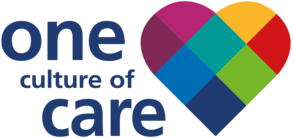In preparation for Safeguarding Week, which begins today, our Safeguarding Team have been asking colleagues what trauma informed practice means to them, as it’s a topic they’ll focus on this week.
Lead Nurse for Learning Disabilities, Amanda McKie, said: "People with a learning disability are at a higher risk of trauma. This can be for several reasons, including abuse, bereavement, being bullied, placement breakdowns and mental health problems. Trauma can affect physical health and create life-long physical health conditions.
"This is especially important to consider when people with learning disabilities experience a lot of health inequalities. If someone's behaviour changes, do not presume it is due to their learning disability. You should always listen to the concerns of family and care staff."
Head Nurse for Medicine, Tom Ladlow, said: "Trauma-informed practice means recognising and responding to the impact on someone's life of trauma and doing this with empathy, understanding, and patient-centred support."
BLOSM Service Lead, Alistair Christie, added: "To be trauma informed means understanding how people's past experiences can impact their behaviours when accessing healthcare. This means our workforce is responsive to their individual needs, and that we develop services which are flexible and empowering. By being trauma informed, we can create a safe environment that is free from judgement, and focuses on what our patients need, rather than what is wrong with them."
Our safeguarding team will be out this week to talk to colleagues about a variety of safeguarding topics, including:
- Trauma informed practice and self-neglect, the role of our Independent Mental Capacity Advocates
- How are we trauma informed?
- Safer sleep
- Safeguarding ourselves: the importance of being trauma informed with each other
There are also various webinars and learning sessions taking place across West Yorkshire this week. Read more and sign up on the West Yorkshire Integrated Care Board’s website.


.jpg)